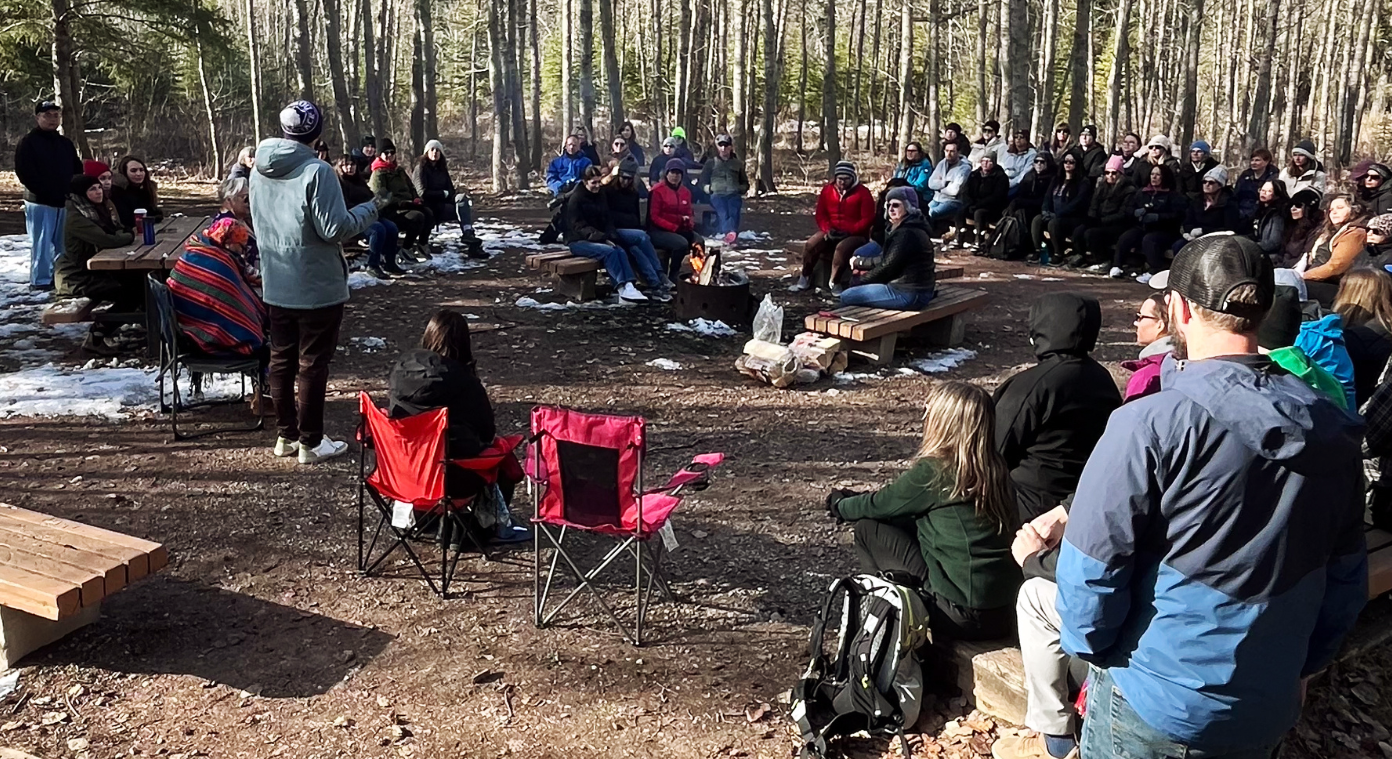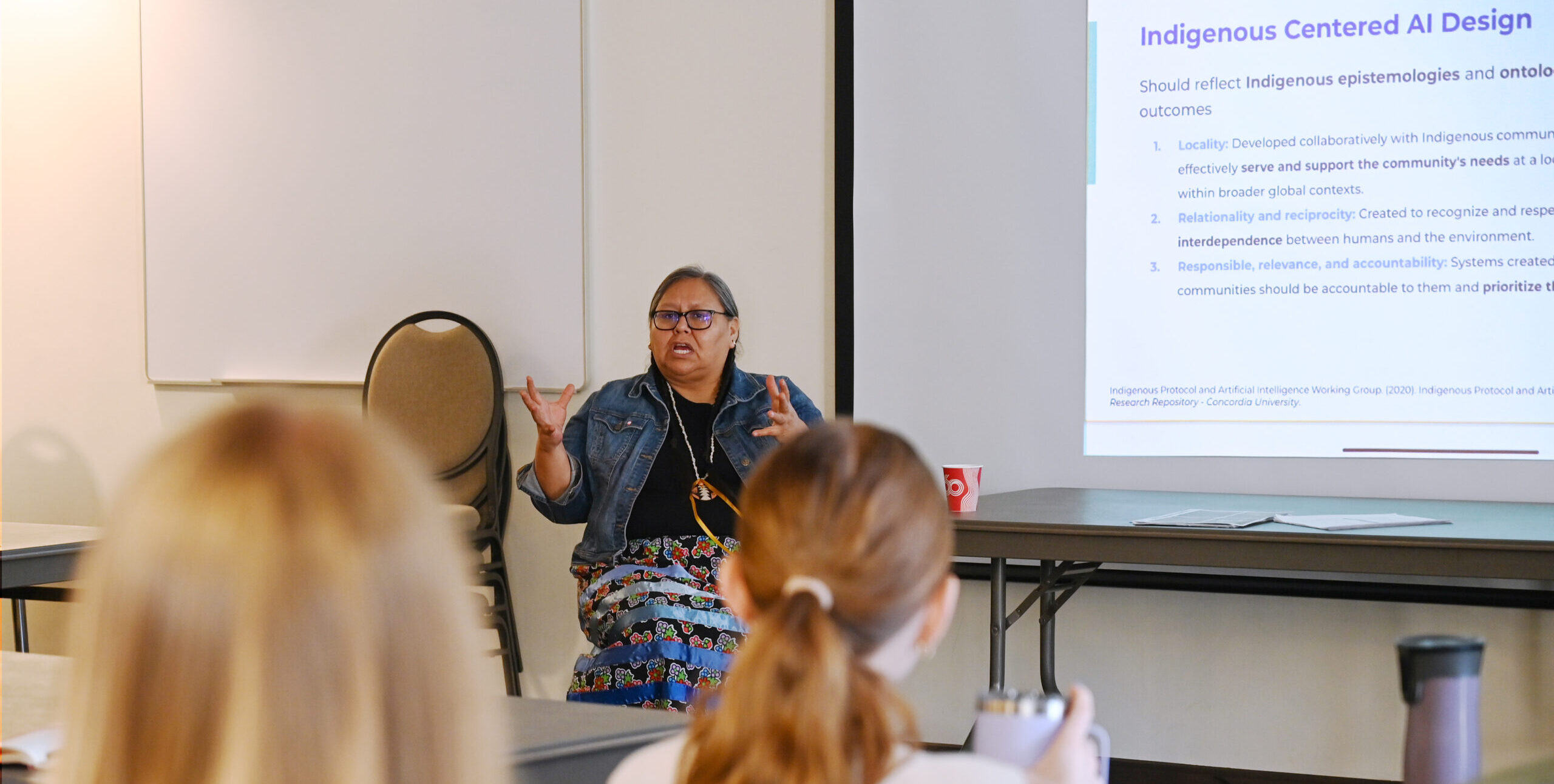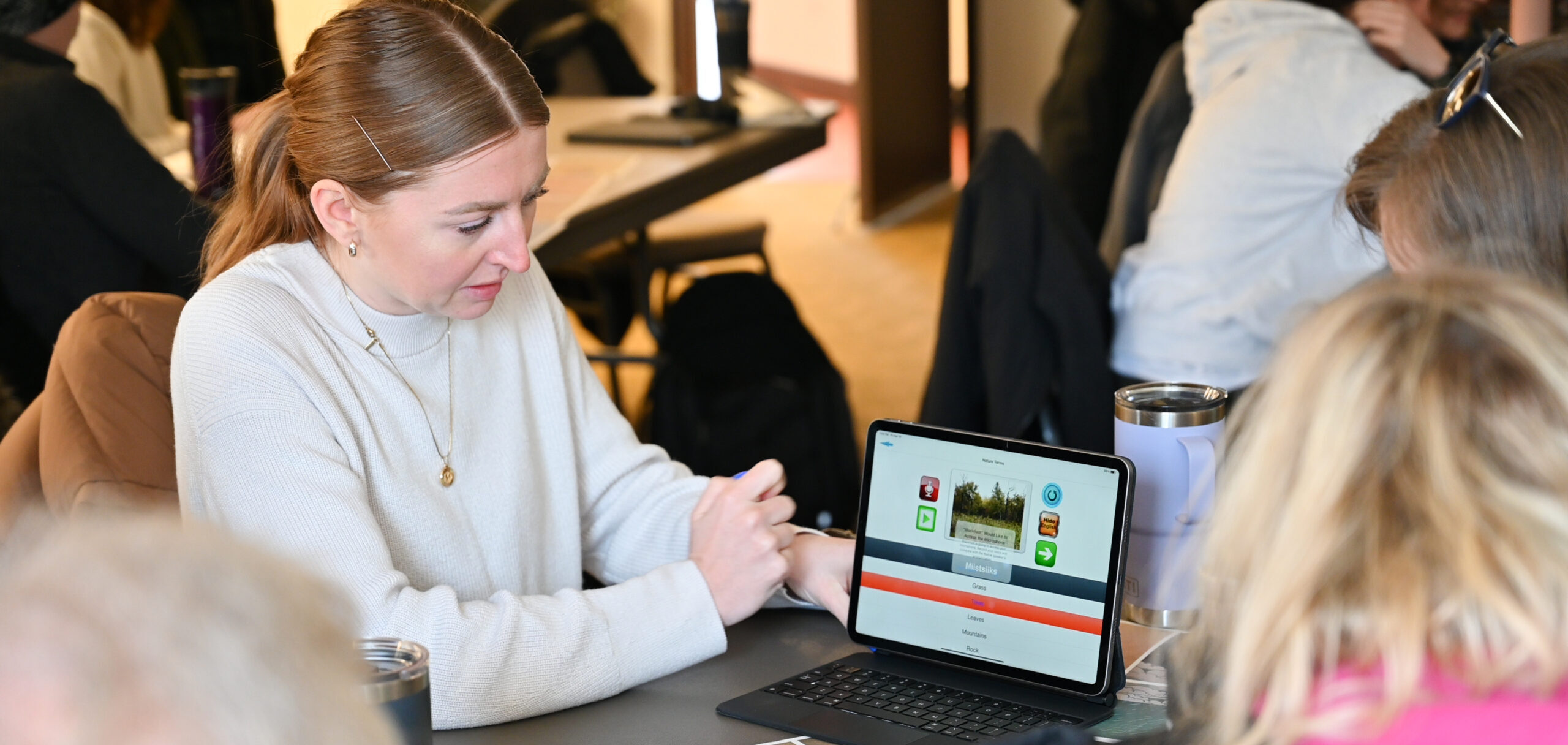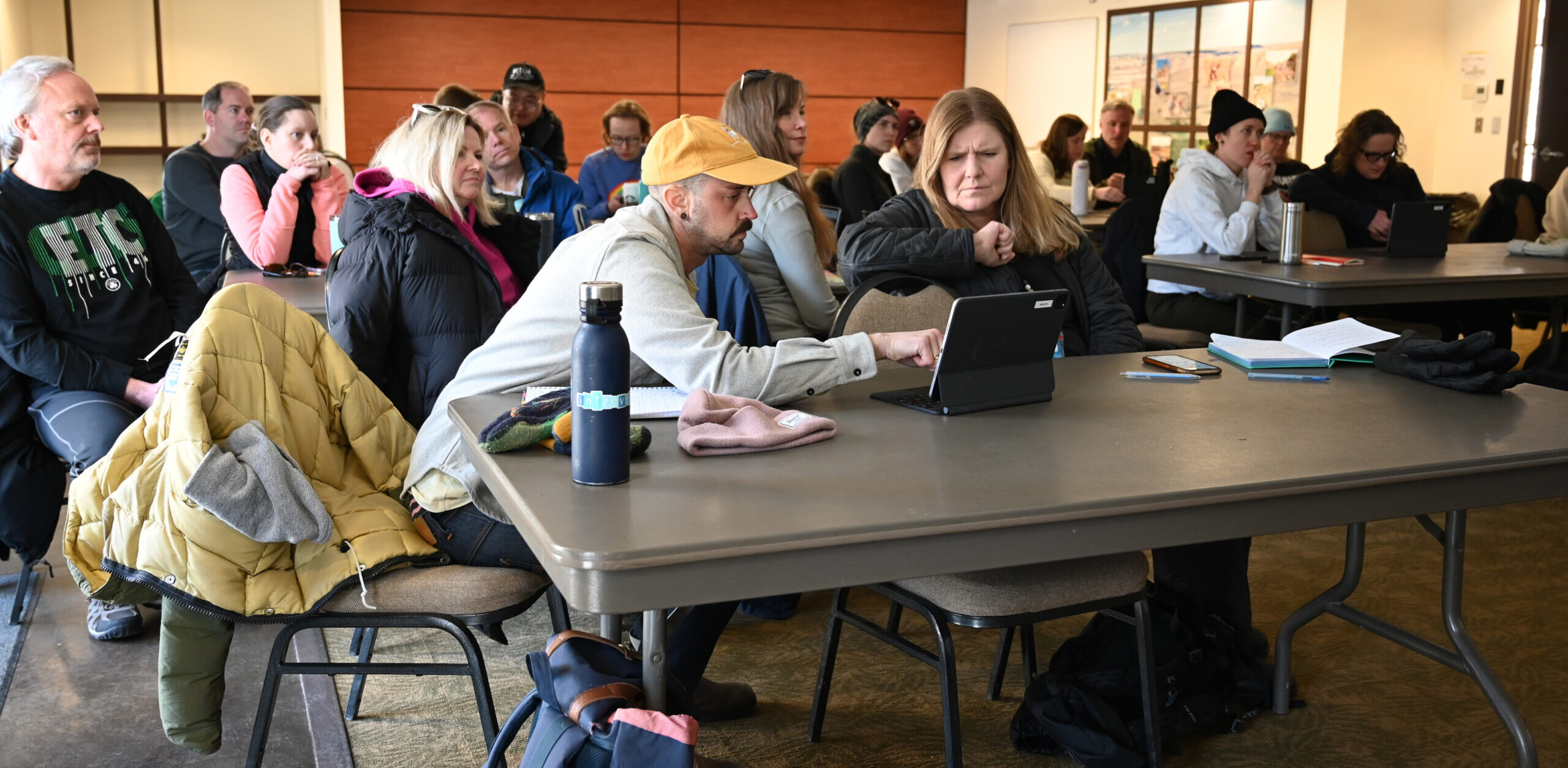An Indigenous Cultural Learning Experience for Teachers
In June 2023, 13 educators from Ontario participated in the Akwesasne InSTEM Educator Land Camp, combining Indigenous Knowledge with Western STEM concepts.
For Indigenous communities, the land has always been used as a classroom. Land-based education and integrating Indigenous Knowledge into STEM learning are crucial for students and educators. By participating in land-based learning experiences, teachers can deepen their understanding and practice of incorporating Indigenous perspectives, enriching their teaching methodologies and supporting all students through culturally relevant learning.
In April 2024, Actua, in partnership with the Calgary Board of Education, engaged 90 educators in a land-based learning opportunity at Fish Creek Provincial Park in Alberta. The immersive experience was designed to integrate traditional Indigenous Knowledge with STEM education.
Actua successfully engages educators in land-based training opportunities every year, such as last year’s Akwesasne educator land camp. This year, our partnership with the Calgary Board of Education has allowed Actua to reach many more teachers.
The training offered engaging activities that enriched the educators’ understanding of aligning culturally relevant content with STEM curricula. These activities are designed to bridge the gap in the education system by emphasizing the importance of creating an inclusive and holistic education environment where Indigenous perspectives belong and are celebrated.
“Coming together with teachers from the Calgary Board of Education is a wonderful opportunity to engage teachers with Indigenous land-based pedagogy. It's also a great way to get teachers involved with the next step that students are taking beyond this camp program.”

CBE team, Actua team and Elder- in- training Anita welcome the teachers with smudging and intention setting for the day.
A significant part of the training experience was the emphasis on relationship-building. Participants had the opportunity to learn from Elders, Knowledge Keepers and each other, creating a supportive and nurturing environment. This intergenerational exchange was highlighted as an essential part of the learning process.
“This land camp is important because, beyond the fact that it’s part of the teacher quality standard, I think there is a human and moral obligation to move Indigenous perspectives forward. The people here obviously care about moving their practice forward to helping non-Indigenous students and moving the education of Indigenous students forward too,” said Shelagh McCracken, Educator, Calgary Board of Education.

Elder-in-training Anita discusses Indigenous languages during the Actua session Digital Dialogues: Aligning Indigenous Knowledge and STEM through AI.
One of the standout sessions during training focused on leveraging artificial intelligence (AI) to support revitalizing Indigenous languages. This innovative approach includes the intersection of emerging technology and language tradition, providing educators with a unique experience to enrich their STEM teaching practices.
During the session, participants delved into the Blackfoot language, guided by Elder-in-training, Anita Crowshoe, who shared her language and cultural insights. The teachings extended beyond vocabulary and grammar and highlighted stories, traditions and the intrinsic connection between language and the land. “I think revitalizing the language is massively important, to see how Indigenous people grew up without their language. It’s awesome seeing it being revitalized,” said Shelagh McCracken.
The session showcased practical applications of AI for language revitalization. For instance, AI can assist in creating databases of Indigenous words and phrases and develop language learning and teaching tools. This was highlighted through activities such as nature walks and photography, which were used to teach and document Blackfoot language terms related to the environment. By connecting language to tangible experiences with nature, educators saw firsthand how language, culture and land are intertwined.

During the session Digital Dialogues: Aligning Indigenous Knowledge and STEM through AI, the teachers test the Blackfoot app and apply the concepts presented by the Actua team.
Another session during training, led by Actua’s InSTEM team members Joel Gamache and Ethan Boyer, focused on curriculum mapping through land-based learning. The session began with an exploration of common misconceptions about land-based learning. Many educators might assume that land-based learning is about conducting lessons outdoors. However, the session emphasized that it is a relational process that involves a deep connection with the land and its stories. This approach is not about achieving a final product but engaging in an ongoing learning process that fosters relationships and understanding with the land.
Unlike Western educational methods that can be transactional —where knowledge is transferred from teacher to student—Indigenous land-based learning encourages a more holistic approach. This involves understanding and integrating the stories, teachings and knowledge of the land and its inhabitants into the curriculum. The session highlighted how they implemented this approach within their programs, providing practical examples and strategies.
“This experience is so important for educators just to be able to connect with all of our relations, to learn how to walk in a good way and to know that the land is our teacher and learning how to mobilize this knowledge to be able to share it with our students, to connect our students with the land again,” says Beverly Kinley, Calgary Board of Education, Specialist of Indigenous Education.

During the session Digital Dialogues: Aligning Indigenous Knowledge and STEM through AI, the teachers test the Blackfoot app and apply the concepts presented by the Actua team.
The teacher training opportunity aimed to establish ongoing learning communities for educators. “A major intention for the InSTEM program is to create those next-step opportunities and stay connected to the community that we’re building together through these learning experiences,” says Ethan Boyer.
By actively engaging in the training, educators became integral parts of a supportive network dedicated to advancing Indigenous perspectives in curriculum development. This experience will provide ongoing support and equip educators with the necessary skills to empower Indigenous youth throughout the school year. This ongoing support is pivotal in establishing a sense of belonging and value within the learning community for Indigenous students.
A look into the 2-day educator training.